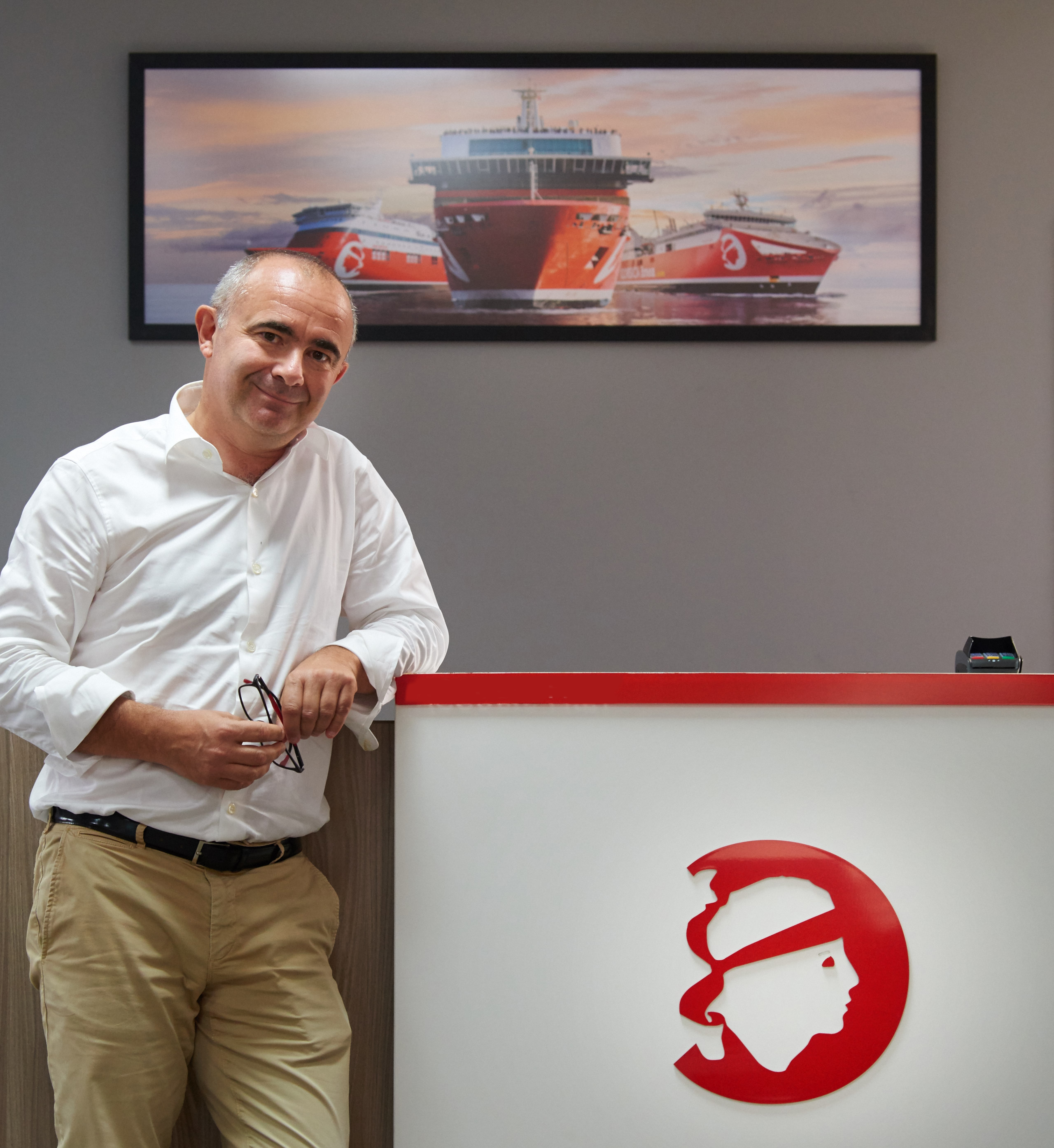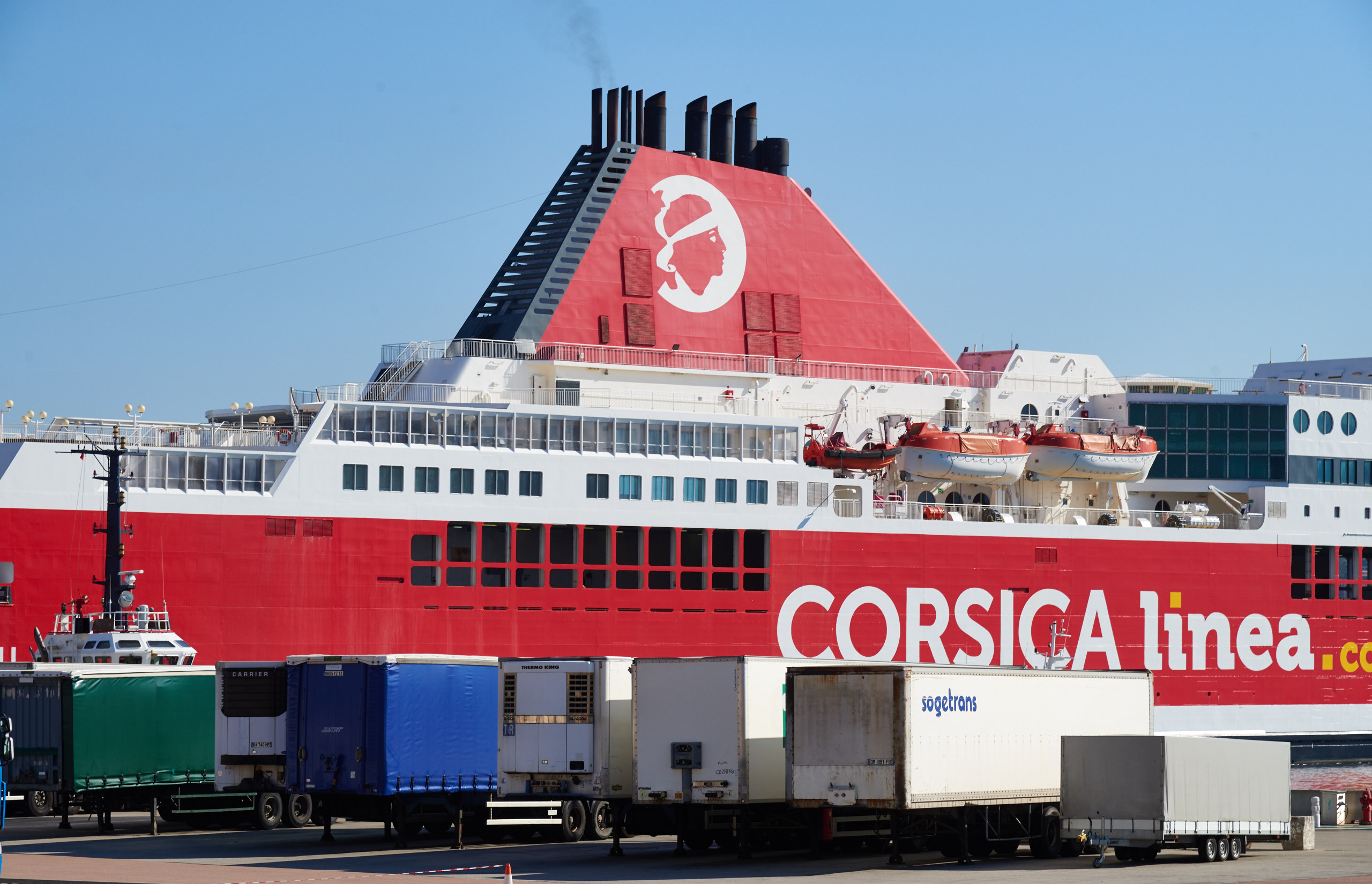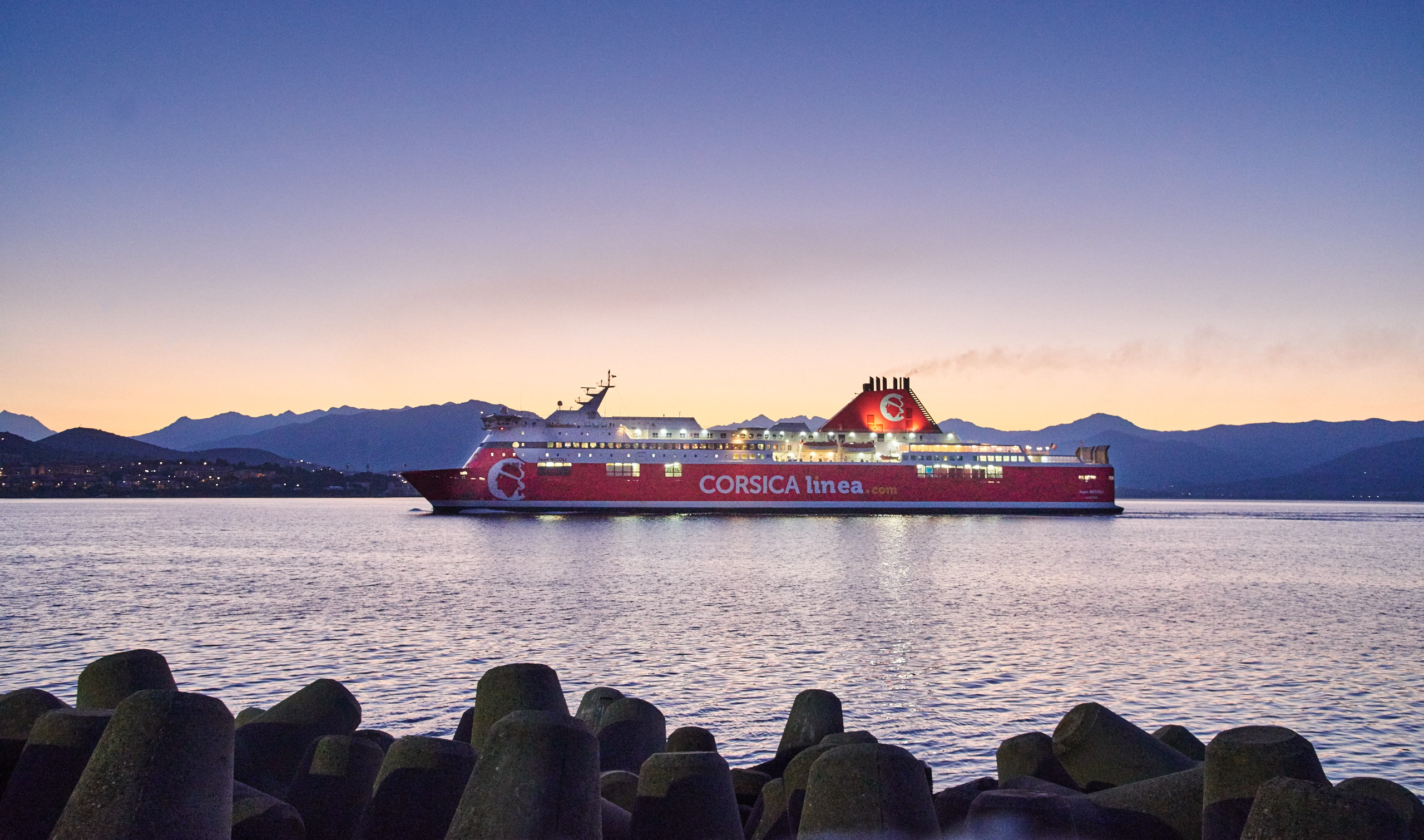Can you define your customers?
We have three main customers: freight, passengers and the OTC (Office des Transports de la Corse).
The OTC is the emanation of the Corsican Assembly, the unicameral legislative body of the territorial collectivity of Corsica. It is the OTC who decides what kind of Public Service is needed.
Is it pax only, freight only, or a mix? OTC evaluates and decides.
You are now at the start of your third year. How does the company look like?
Freight is healthy. The passengers are back and our company is in good shape. Now we are entering the second phase of our development. We need to be sustainable, both economically and environmentally.And we also have to act responsibly, socially and environmentally.
My three pillars are:
1) Being a socially respectable company. We do not want to be a low-cost. I want to keep using French seafarers, which is by the way three times as expensive as Italian seafarers.
2) Creating a company that gives a societal meaning. Our company wants the local economy to benefit, rather than the global economy. If I can have suppliers from Corsica or Marseille, I would prefer. This gives a societal meaning: network of suppliers, jobs
3) Being respectful for the environment.
We just announced that three ships will be connected to shore power in Marseille. And the day we are having a new ferry, it will be LNG-powered. We will be ready for the environmental mutation of the company.
All this might sound very philosophic. It is not. I really hope that the people understand what we do, and that they connect with my project for the company. It is a real vision which is in fully line with what a modern company should be
If you say Corsica or Marseille, do you really mean both sides?
Yes. Our company is not a company based in Marseille, doing business with Corsica. We are a company with two anchor points. I live here (Corsica) but every week I am 2-3 days in Marseille. In the beginning people were anxious about us running the company against Marseille. No way!
What is your long-term vision?
Our ambition is to be leader on the freight side. On the passenger side we’ll never be leader. But we consider the mix of freight and PAX in ro-pax ships is the right mix for Mediterranean islands as it is in Sardinia and the Balearic Islands.
Where did you acquire your expertise to handle this start-up?
For 20 years I worked for the Suez Group, and that’s where I acquired the tools you need to create changes. I just had to install them in a smaller, human-scaled company, what we call an ETI (Entreprise à Taille Intermédiaire, medium-sized company).
In the transition from state-owned company to start-up, you must have torn down many traditions?
We ripped down many ‘codes’. For example, I tore down the code of seniority, which was a tradition. You might have been 100 times better than your older colleague, but he would be promoted, because of the number of years. That was nonsense.
Our fleet manager is a second engineer. He was not chief engineer. It is a guy with the spirit of an entrepreneur and was willing to get started. In the beginning there was some reluctance. Now he’s a driving force within the company.
It must not have been easy to change such traditions?
Does it make any sense? No! I don’t want to have to explain within three years why I killed my company.
All those young people have always been there, wanting to give the best of themselves. Well, now they want it even harder. I operate the same way as 90% of successful companies in the world do.




